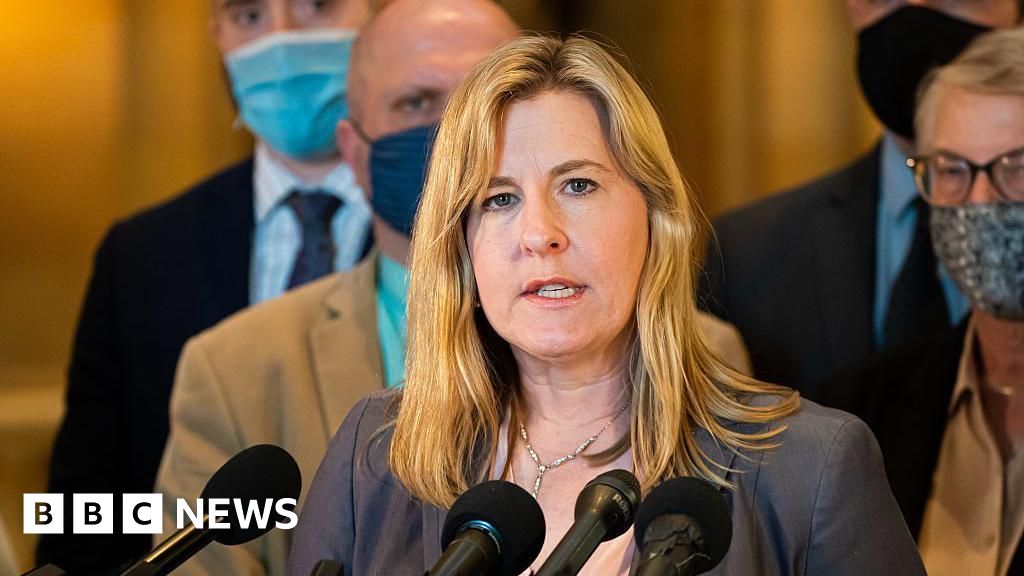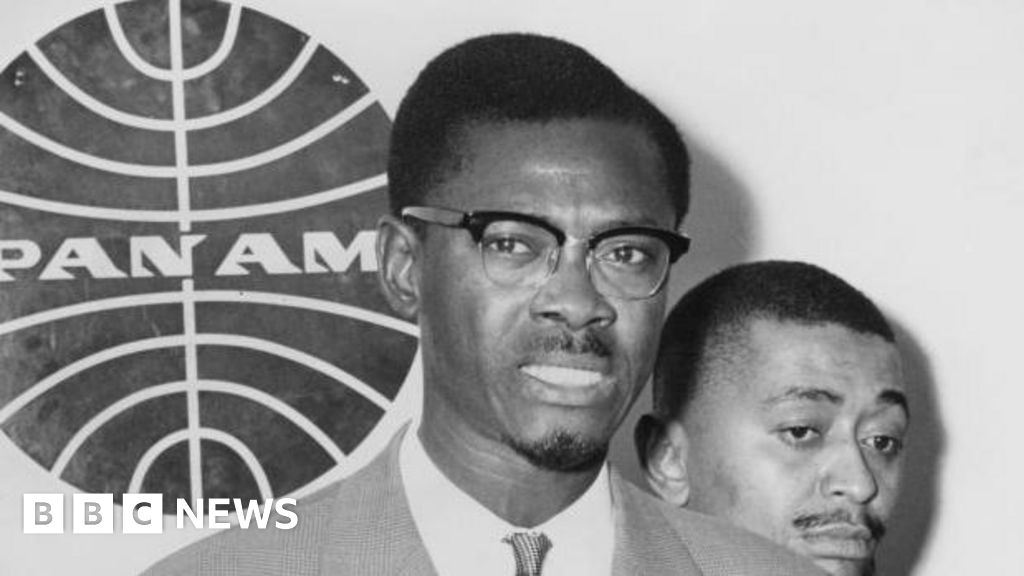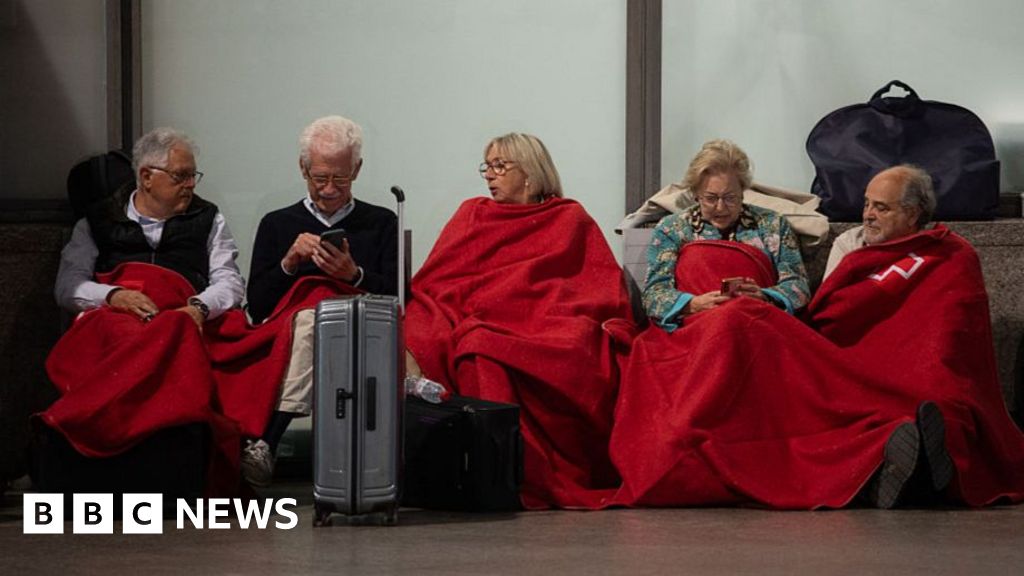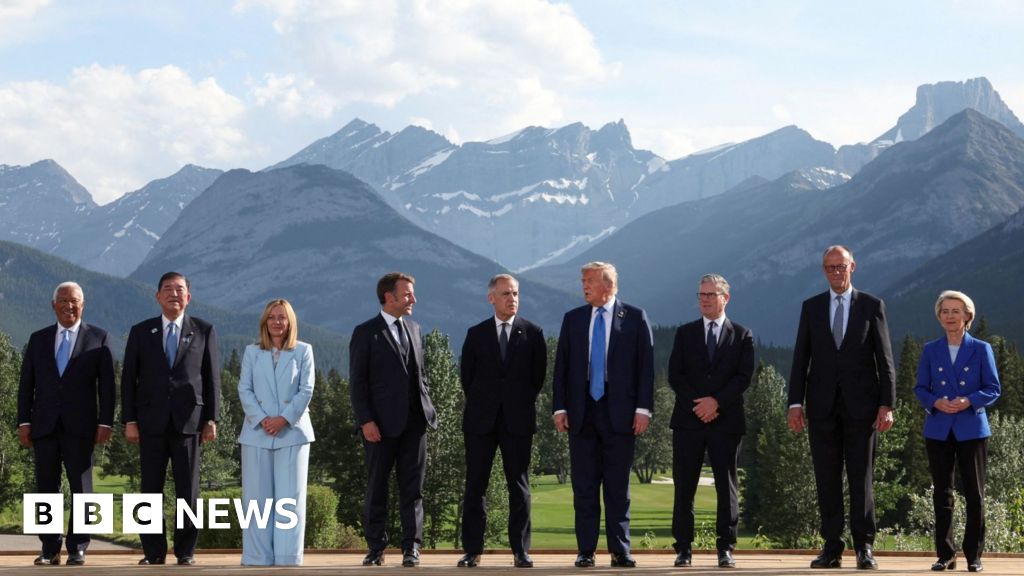It was well after 2 a.m., but an aide to Vice President JD Vance was trying to roust a senior Ukrainian official out of his bed in a Munich hotel. He wanted a face-to-face meeting to close a deal letting the United States extract valuable minerals in Ukraine, a priority of the new president, Donald J. Trump.
It had to be done that night, the aide said, before Mr. Vance was scheduled to meet the next day with President Volodymyr Zelensky of Ukraine at a trans-Atlantic security conference. The Ukrainian protested that it was late and refused to leave his room, according to a foreign policy adviser briefed on the incident. The meeting the next day went ahead, though the proposal remained unsigned.
The minerals deal, which was finally signed on Wednesday, and the pre-dawn attempt to push it through in February, are a telling symbol of American statecraft in the second Trump administration. Exploitative, transactional, almost imperial in its demands, the deal encapsulates Mr. Trump’s approach to the world in his first 100 days, a chaotic period unlike any in the post-World War II era.
From the NATO alliance to the global trading system, Mr. Trump has swung a giant wrecking ball through the existing world order.
He has seemed, at times, heedless of the cost to the domestic and global economy, to trust in the United States or to the value of its most credit-worthy holdings. The dollar swooned and the yield on Treasury bonds spiked as investors fled American assets.
Mr. Trump has bluntly challenged the core principle of national sovereignty, hectoring Canada to become the 51st American state and threatening Greenland with an American military occupation. His across-the-board tariffs have halted a decades-long march toward free trade and open markets, driving up prices, paralyzing investors, chilling consumers and triggering a dangerous trade war with China.
“We will not allow ourselves to be taken advantage of any longer,” the president declared in his inaugural address in January. “During every day of the Trump administration, I will, very simply, put America first.”
In his headlong rush to replace Pax Americana with America First, Mr. Trump has left the world fumbling to adjust to a new landscape, the contours of which are still in flux. To many foreign leaders, who grew up in a world cushioned by the postwar alliances and multilateral institutions created by the United States, the president’s approach has landed with the unsettling thud of a predawn visit at the door.
“For America’s friends and allies, this is traumatic,” said Malcolm Turnbull, who was prime minister of Australia during Mr. Trump’s first term. “It’s like discovering your spouse has betrayed you and has a secret life. Suddenly you discover that the U.S. has a thoroughly different agenda.”
Mr. Turnbull had his own run-in with Mr. Trump in 2017 over the handling of refugees. But this time, he said, is different. Untrammeled by advisers who curbed his most extreme impulses in the first term, Mr. Trump has moved with dizzying speed across multiple fronts. He is trading allies for adversaries in Europe, floating a far-fetched proposal to rebuild war-torn Gaza, and sending immigrants — in at least one case, accidentally — to a maximum-security prison in El Salvador, beyond the reach of American courts.
And yet, the world is also responding. Recognizing that Mr. Trump’s policies may no longer be simply the passing fancies of an aberrational leader, countries are making new commitments and seeking new alliances — in some cases, new leaders — the better to cope with an erratic, unreliable and inward-looking America.
A few are standing their ground, whether it is the patriotic resistance of Canadians and Greenlanders or China’s tit-for-tat response to Mr. Trump’s tariffs. Even Mr. Zelensky’s foot-dragging on the minerals deal resulted in an agreement that provides Ukraine with a degree of American engagement in return for America’s access to proceeds from Ukraine’s reserves of rare earth minerals.
The late-night request by Mr. Vance’s aide for a face-to-face meeting in Munich, officials familiar with the episode said, was part of a lengthy exchange of texts and calls over the deal between him and Ukrainian officials.
There are signs that firmness has an effect: In Canada, Prime Minister Mark Carney won an election victory this week with a stand-up-to-Trump message. Mr. Trump has adjusted his tariffs against China to exempt key products, while he and Mr. Zelensky held, by all accounts, a good meeting before Pope Francis’ funeral at the Vatican, two months after their spectacular bust-up in the Oval Office.
“We don’t know whether the shock-and-awe approach is going to be a permanent fixture of American foreign policy or a more fleeting phenomenon,” said Wolfgang Ischinger, who served as Germany’s ambassador to the United States from 2001 to 2006. “So, we’re trying to hedge against the consequences of what has already happened and hedge against possible future developments.”
In Germany, that has opened the door to a landmark spending package of 500 billion euros ($568 billion) on defense and public-works projects. It was prodded, Mr. Ischinger said, by the “electric shock of Donald Trump” and his abrupt pivot from Europe to Russia’s president, Vladimir V. Putin.
It has been a harrowing 100 days, forcing America’s partners through a process not unlike the stages of grief popularized by the psychiatrist Elisabeth Kübler-Ross. Denial, anger, bargaining, depression and ultimately, a measure of acceptance — all these emotions, and more, are rippling through a world remade by Mr. Trump.
Day 25, Munich: From Allies to Adversaries
Few have embraced the role of the president’s enforcer abroad more enthusiastically than his vice president. Arriving on Valentine’s Day at the Munich Security Conference, Mr. Vance was armed with a quiver of arrows.
Yet while waiting to give his speech in a kitchen next to the stage at the Hotel Bayerische Hof, he bantered easily with a handful of organizers and other officials, recalling his previous appearance at the meeting, as a senator in 2024, which he said had raised his stature and might even have helped him get picked by Mr. Trump as his running mate.
“We all laughed and joked, and then he was like, ‘I might scare you a little,’” said one of the hosts, recalling the lighthearted exchange amid a clatter of pots and pans.
Mr. Vance’s 18-minute speech did more than that. It all but shredded eight decades of trans-Atlantic ties. His big fear for Europe, he said, was not Russia or China, but the “threat from within — the retreat of Europe from some of its most fundamental values, values shared with the United States of America.”
Europe, he claimed, is a place where elite bureaucrats muzzle freedom of speech, cancel elections they don’t want and sideline parties they don’t agree with. European leaders were afraid of their own voters, he told the stunned audience, before delivering a thinly veiled endorsement of Germany’s far-right party, Alternative for Germany, or AfD, a week before a parliamentary election there.
As Europeans filed out of the auditorium, dazed and angry, the message seemed clear: Not only was the United States abandoning Europe on security, but it was also turning its greatest ally into an ideological adversary.
“He put his finger where it hurts the most: values,” said Benedikt Franke, the chief executive of the Munich Security Conference. “Whatever differences we had with the U.S. before, we always thought at least we could rely on the same values to bring us back together eventually.”
Some allies of Mr. Trump insist that the change is less about values than cold geopolitical calculation. The Cold War paradigm, in which the United States throws a security umbrella over its allies in Europe and Asia, is giving way to a much narrower view of American security, said Stephen K. Bannon, former chief strategist for Mr. Trump. It is built on securing America’s own hemisphere, while leaving the security of Europe and Asia to the Europeans and Asians.
Mr. Bannon acknowledged the risks to this retrenchment, most obviously in East Asia, where China, having witnessed Mr. Trump’s tolerance of a revanchist Russia, might be emboldened to move on Taiwan, which it has long claimed as its own. He argued that Mr. Trump’s tariffs, which he described as “economic war,” would be a check on the territorial ambitions of China’s president, Xi Jinping.
“What Trump is doing is rethinking the geostrategic order,” Mr. Bannon said. “It’s almost like the Congress of Vienna,” he said, referring to the early 19th-century diplomatic meetings that set the borders of a post-Napoleonic Europe.
This, he said, also explains Mr. Trump’s designs on the Panama Canal, Canada and Greenland. No longer merely neighbors, they are ramparts in a hemispheric fortress. For some in Greenland, a remote Arctic expanse that Mr. Trump first suggested buying from Denmark in 2019, the interest was initially flattering.
“I thought, ‘What a fascinating time to be living in Greenland,’” said Jorgen Qimussersuaq Kristensen, one of its most celebrated dog-sledding champions. “Suddenly, the world opened up to us.”
But as Mr. Trump’s overtures grew more insistent — in January, he refused to rule out using military force to take the island — Greenlanders bridled. A planned visit in March by Mr. Vance’s wife, Usha, did not help. Originally, she was to attend the “Great Race of the North,” a dog-sled competition won by Mr. Kristensen five times.
After White House planners learned of looming protests, they scrubbed it, substituting a three-hour stop with her husband at an American military base on the northern end of the island. The vice president chided Denmark for its shabby treatment of Greenlanders, saying that only the United States would protect them.
“That way of speaking — saying ‘We take Greenland’ — it’s not good,” Mr. Kristensen said. “More Greenlanders don’t like them now.”
Day 39, the Oval Office: Learning to Live With Trump
When Mr. Zelensky sat down with Mr. Trump in the Vatican last Saturday, their utilitarian cushioned metal chairs were a jarring contrast to the Renaissance splendor of St. Peter’s Basilica. The two men seemed to take little notice, leaning into each other, as if sharing a confidence. The White House described the brief meeting as “very productive.” Mr. Zelensky said it might prove historic.
Whether a 15-minute huddle will salvage America’s support for Ukraine is, of course, too soon to say. But it may provide a lesson to leaders in how to deal with Mr. Trump. Since their bitter encounter on Feb. 28, when the president told Mr. Zelensky, “you don’t have the cards” against Russia, Mr. Trump has been nudged to the point where he now accuses Mr. Putin of stringing him along in cease-fire negotiations.
The fence-mending began immediately after a grim-faced Mr. Zelensky left the White House that February evening. The next day, Prime Minister Keir Starmer of Britain soothed his bruised feelings over dinner at 10 Downing Street. He and President Emmanuel Macron of France then coached him on how to make amends. Both had paid calls on Mr. Trump that had gone well, not least because they were more solicitous.
Mr. Starmer dispatched his national security adviser, Jonathan Powell, to the Ukrainian capital, Kyiv, to work with Mr. Zelensky on a response that would satisfy Mr. Trump. Mr. Zelensky initially recoiled at using the word “cease-fire,” worried that it would trap Ukraine in a truce that the Russians would breach. Mr. Powell crafted language that referred to ending the fighting “in a lasting way.”
Mr. Starmer phoned Mr. Trump to see if he could live with that, according to officials briefed on the deliberations. He said he could. Mr. Zelensky expressed regret over the Oval Office meeting, though he never formally apologized.
In some cases, foreign leaders have found, simply waiting out Mr. Trump is the best option. In early February, the president floated a pie-in-the-sky plan to relocate more than two million Palestinians from Gaza to neighboring Jordan and Egypt. The ruined enclave, Mr. Trump said, could then be taken over by the United States and transformed into the “Riviera of the Middle East.”
For Jordan’s King Abdullah II, who already hosts 2.4 million Palestinian refugees in his country, it was deeply aggravating, according to an Arab diplomat who was briefed on his reaction. Jordanian officials believe the idea originated with right-wing Israeli officials, some of whom have spoken openly of clearing Gaza of its Palestinian residents.
Rather than become angry, Abdullah kept his cool, the diplomat said. At a meeting in the Oval Office a week later, Mr. Trump asked the king why he could not take more refugees. Abdullah replied that Jordan already had far more refugees, per capita, than the United States. It was a well-worn Jordanian talking point, but it nevertheless appeared to placate Mr. Trump. He has said little about the plan since then.
Day 79, Guangzhou: China Doesn’t Blink
If there is a unified theory behind Mr. Trump’s global disruption, it is the superpower rivalry with China, which he accuses of “ripping off” the United States through an unbalanced trade relationship. Yet the tariffs, an article of faith for Mr. Trump going back to the 1980s, have done little to intimidate the Chinese.
When the noon hour struck on April 9 in the southern Chinese city of Guangzhou, and tariffs on Chinese exports soared in the United States, Elon Li barely took notice. Standing near the front of his busy factory, which turns out ovens and cooking equipment for restaurants, Mr. Li kept talking, even as his workers halted their screeching machines for lunch. He said his priority was on getting safety certifications so that he could start shipping through Amazon to the United States later this spring.
The tariffs do not faze him. China’s manufacturing costs are so much lower than anywhere else in the world, Mr. Li said, that it would always be competitive. “I think it is OK, because there are not many choices,” he said.
That pragmatic optimism has persisted in China in the face of Mr. Trump’s tariffs, and it has fueled perhaps the most forceful pushback by any country. China has responded to Mr. Trump’s triple-digit levies in kind — confident that in many industries, it so completely dominates the supply chain that rivals would find it hard to make comparable goods anywhere else.
China’s real weapon may lie in the red-clay hills where it mines heavy rare-earth elements. In early April, it temporarily halted exports of rare-earth metals, which are turned into magnets, a crucial component in electric motors. China is creating a new export license system that could hinder the ability of American military contractors to obtain these supplies over the long term.
China’s refusal to blink appears to be working. Mr. Trump recently handed out exemptions for consumer electronics, like laptop computers and smartphones. His Treasury secretary, Scott Bessent, said a trade war with China was not sustainable.
Japan and South Korea, with smaller economies than China, are relying less on muscle than on their ties to the United States, which is, after all, still nominally an ally.
Japan’s prime minister, Shigeru Ishiba, sent an old friend who had studied in the United States, Ryosei Akazawa, to meet with Mr. Trump’s aides. He wound up getting a meeting with the president, who complained that “there are no American cars on your roads,” but gifted him a red MAGA baseball cap. South Korea’s acting president, Han Duck-soo, made clear in a CNN interview just before he spoke to Mr. Trump by phone, that his country would not join with China, as had been rumored, to counter the tariffs.
Whether those gestures will work is anybody’s guess. Both countries are eager to strike trade deals, but the line of hopefuls in Washington is long. And Mr. Trump made his negotiating strategy clear in an Easter post on his Truth Social platform that could serve as a summary of the Trump doctrine.
“The golden rule of negotiating and success,” Mr. Trump wrote. “He who has the gold makes the rules.”
Reporting was contributed by Katrin Bennhold and Steven Erlanger in Munich, Jeffrey Gettleman in Nuuk, Greenland, Aaron Boxerman in Jerusalem, Fatima AbdulKarim in Ramallah, West Bank, Keith Bradsher in Guangzhou, China, Martin Fackler in Tokyo, and Choe Sang-Hun in Seoul.
Source link


















